1962, A French engineer by the name of Pierre-Marcel Lemoigne , developed the Ascending-
Gliding Parachute. Lemoigne’s concept was achieved by modifying a "ParaCommander"
parachute. The ParaCommander design was based on the 24-gore 'suspension line’ parachute
that incorporated steering slots making it very maneuverable on descent and the parachute of
choice for most skydivers and the military. Lemoigne sealed the top steering slots then added
stabilizer and exhaust vents allowing on oncoming air flow to be redirected to provide lift.
Lemoigne established the Aeronautical Training Service to introduce his new ParaCommander
ascending parachute and establishing the sport of Parascending. He displayed his new product
at various jump centers around Europe to train new parachutists in a more concentrated form
by towing the parachutist to a suitable altitude behind a vehicle then releasing them to practice
landings. This training method proved much more cost effective than an airplane.
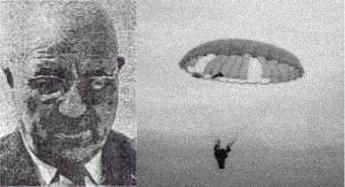
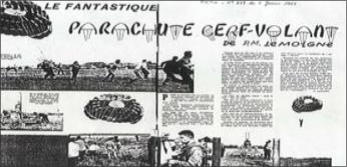

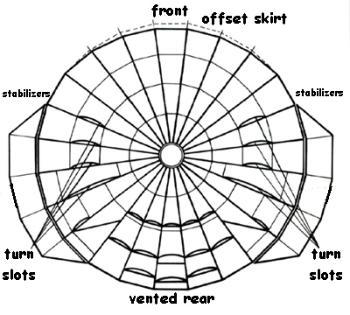
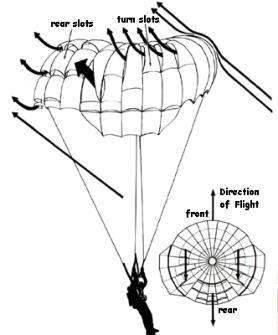
Being Towed
Free Fall Descent
1963, in preparation for the Gemini 6 mission, The US Air Force conducted water survival
training exercises for the crew in cooperation with Pioneer Parasail who provided the parasail
gear and technical support.
The purpose of the water survival training program was to familiarize and develop confidence
in flight crews with techniques and procedures proven successful in sea survival following an
emergency ditching or bailout over open water while wearing and strapped to a standard
military parachute.


Welcome to the
Parasail Safety Council Website
The worlds premiere source for parasail information
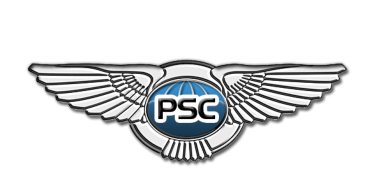



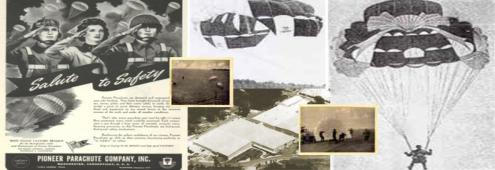
1962, Lemoigne sold his modified ParaCommander 'towable' 24-gore
parachute canopy design to Pioneer Parachute Company. Pioneer
Parachute began production of the new ascending Parachute in
Manchester Connecticut and marketed it under the trade name
"Parasail". The Parasail was initially sold for training of sport parachute
enthusiast and military pilot training on land. Today Pioneer Aerospace
is one of the largest suppliers of skydiving and military parachutes in
the world.
Their product designs include state of the art aerodynamic deceleration
systems that support specialized tactical, personnel, cargo,
humanitarian, weapons, and space exploration programs.
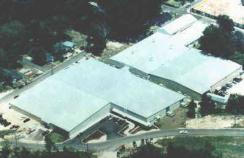
PIONEER PARACHUTE CO.


1965, "Astronaut Thomas Stafford" parasail’s over Galveston Bay wearing a parasail harnessed space suit, helmet and carrying water survival
gear hanging below him as shown in the picture below.
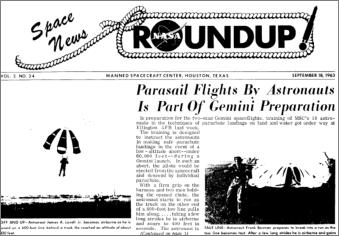





In early 1969, Parasailing took another in popularity when vehicle
were used to tow parasailors over land for recreational
entertainment use parachute training.
In late 1969, Parasailing for hire emerged off of the beaches in
high tourist beach resort areas like Mexico and the Caribbean.
Parasailing attracted thrill seekers to a new high flying aerial
adventure charging $5 for a 50 foot tow up in the air. The willing
participant was strapped into a body harness attached to the
parasail while a tow boat lifted them aloft from the beach. When
the ride is over, the parasailor was instructed by the ground crew
using flags to pull down on the riser lines to position the Parasail
over the beach while the tow boats slowed for landing.
Today, beach parasailing is viewed as a crude and dangerous
method and as such is banned from most beachs.
Water Survival Training for the military began in earnest in Germany
during WWII where paratroopers using regular parachutes, were trained
to survive water landings
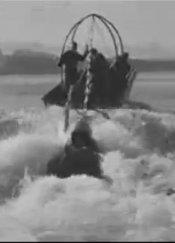
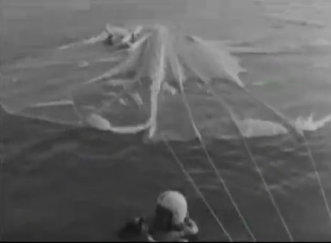
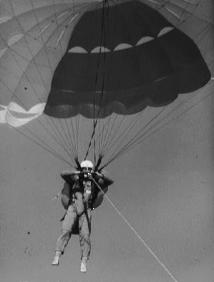
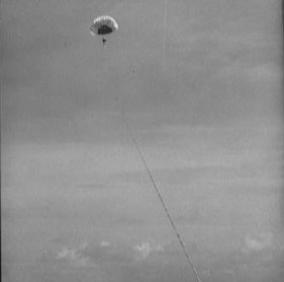



Parasail Safety Council
Main Office The Clayton & McCulloh Office Building 1065 Maitland Center Commons Blvd. Maitland, FL 32751 Telephone : (321-236-1522 Email: mark@parasail.org © 1998-2022 Mark McCulloh - All Rights Reserved
General Disclaimer: This website is provided “as is” without any representations or warranties, express or
implied. Mark McCulloh makes no representations or warranties in relation to this website or the
information and materials provided on this website. Without prejudice to the generality of the foregoing
paragraph, Mark McCulloh does not warrant that: a) this website will be constantly available, or available
at all; or b) the information on this website is complete, true, accurate or non-misleading. Nothing on this
website constitutes, or is meant to constitute, advice of any kind. Limitations of liability: Mark McCulloh
will not be liable to you (whether under the law of contract, the law of torts or otherwise) in relation to the
contents of, or use of, or otherwise in connection with, this website: a) to the extent that the website is
provided free-of-charge, for any direct loss; b)for any indirect, special or consequential loss; or c) for any
business losses, loss of revenue, income, profits or anticipated savings, loss of contracts or business
relationships, loss of reputation or goodwill, or loss or corruption of information or data. These
limitations of liability apply even if Mark McCulloh has been expressly advised of the potential loss. By
using this website, you agree that the exclusions and limitations of liability set out in this website
disclaimer are reasonable. If you do not think they are reasonable, you must not use this website











































